- Living & Working abroad
Cultural Differences When Moving Abroad
Relocating abroad is an exciting journey that opens up new opportunities, but it also comes with its own set of...
Read moreLiving & Working abroad
With its mild climate, 250 days of sunshine per year and 850 km of splendid beaches bathed by the Atlantic Ocean, Portugal is the perfect place to settle. This is a country that has the oldest borders in Europe, with an exceptional diversity in its landscapes just a short distance away, lots of leisure activities and a unique cultural heritage, where tradition and modernity get mixed in perfect harmony. Its superb cuisine, fine wines and hospitable people make this part of Europe a Mediterranean paradise of the highest quality.
Many international companies have also chosen Portugal to relocate their operations or build their services centre thanks to its strategic location and further business opportunities. It's no wonder either that the start-up scene is growing twice as fast as the European average! If you move here, you will work with people from all over the world. Indeed, many expats have also moved here to escape from their home countries' hectic working culture and experience what the Portuguese job market, more multicultural than ever, can offer them.
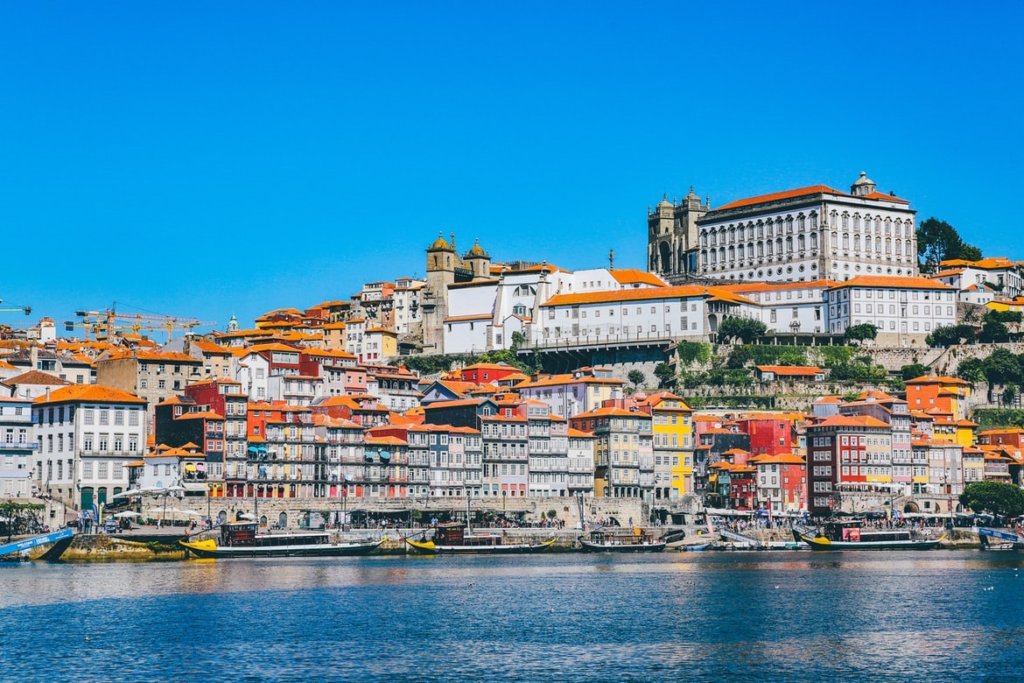
Basic information about Portugal:
Did you know?
The housing market in Portugal is currently doing well thanks to economic growth in the country, so finding an apartment should not be impossible for any expat.
Here are some of the main cities that expats choose to move to:
Lisbon
Portugal's capital city, Lisbon, is the most popular destination for expats across the world. Not only is it one of the oldest cities in Europe, but it also has a bustling city feel with plenty of cafes, bars, architecture and a vibrant nightlife to keep you occupied.
There's a diverse range of people living in the various Lisbon neighbourhoods, where you can enjoy an up-and-coming art scene, modern shopping districts, peaceful residential areas and scenic coastal spots- there really is something for everyone. It can get hectic during the year, especially during the height of the tourist seasons so expect lots of noise and events!
Porto
Located north of Lisbon is the second-largest city in Portugal, Porto. This is another of Portugal's main cultural and entertainment hubs that offer a slightly more relaxed feel than Lisbon. There aren't quite as many tourists-- but it is still a top-rated destination.
There's plenty to do in the city, including enjoying the views of the Douro River and the historic centre (which is now a UNESCO World Heritage Site).
Braga
The third most popular expat destination is the northern city of Braga, an old town that's been made famous by its quaint cobbled streets, narrow lanes and ancient churches. It is indeed a tranquil and peaceful destination for expats who are no longer intrigued by a fast-paced way of life.
The housing costs are pretty low in this city, and you can find big plots of land in the outer suburbs that won't cost much- just remember that they will probably require some renovation.
The Algarve
Located on the south coast of Portugal that stretches between Faro and Sagres, you should consider moving to the Algarve region if you want pristine beaches and year-long sun.
The region is home to some of the most exotic beaches in Europe. It is a popular destination for holiday-makers, families and surfers because of the glorious weather that can be experienced all year round. If you're happy to deal with large influxes of tourists in the summer and slightly higher property rates, this could be an excellent choice for you.
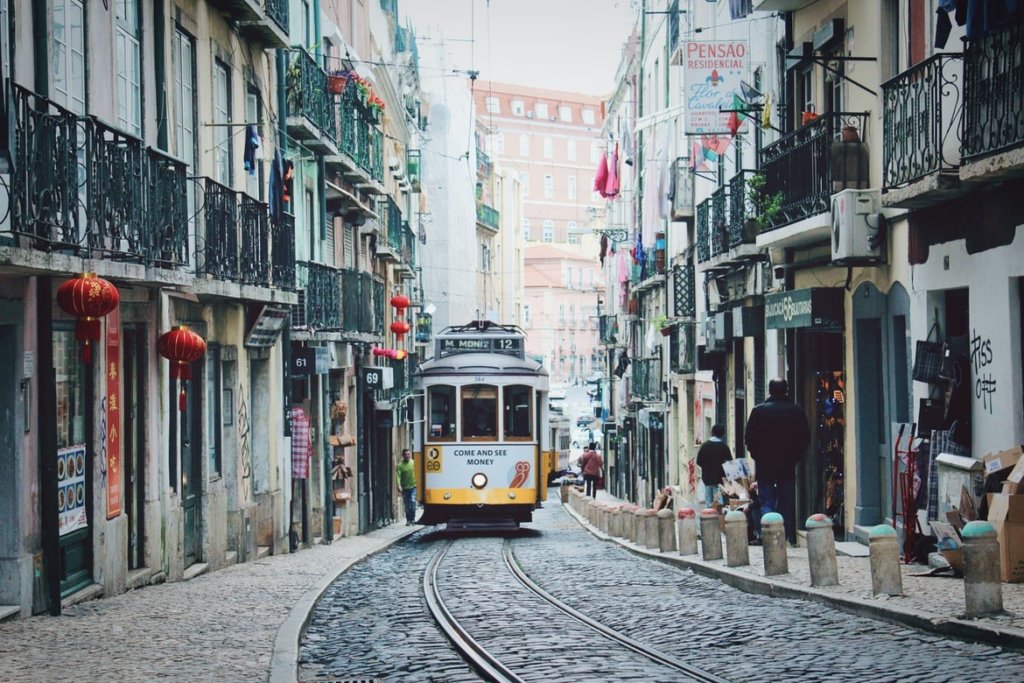
As Portugal receives a large part of its income from tourists, the housing market is seasonal. This means that prices can vary greatly depending on when you choose to rent a home. If you plan to stay long term, you do best to sign a contract that extends over at least one year. This way you know that the rent will not increase during the summer when there will be tougher competition for the apartments.
However, you should not find it too difficult to rent apartments at reasonable prices wherever you are in Portugal. There are both brokerage firms and private alternatives where you can get help finding accommodation. Factors such as the proximity to the sea and the standard of the apartment also determine the final price you have to pay.
At first, it’s normally a good idea to rent in Portugal before you decide to take the plunge and invest in property. This way, you can explore different cities in Portugal and won’t be tied down to one specific area. Rent prices will vary depending on where you live in the country, but if you were moving to Lisbon or the popular areas of The Algarve, you could expect to pay around €600 a month. You could pay as little as €450 for your rent anywhere else in the country. These costs typically include utilities, but always check what the rental agreement specifies! You shouldn’t be looking to pay more than around €100 for your water, gas and electricity. Keep also in mind that water or electricity might be paid every other month when managing your budget.
To find apartments for rent, you can check on the internet, Facebook groups, or local newspapers to see if any landlords are posting ads. For example, two of the most popular webs are https://www.idealista.pt/ or https://www.kyero.com/en/portugal-property-long-let-1l55731.
When signing a lease in Portugal, you’ll usually be asked to pay a deposit upfront, which can be equivalent to 1-3 months rent. Depending on your landlord, you may also have to pay your first month’s rent upfront. But as we always recommend, never pay in advance or before you have seen the room or the apartment in person first!
Living in Portugal is a great choice, particularly for those who like maritime-related activities. The country stretches for 800 kilometres along the coast of the Atlantic Ocean! You will never be too far from a beautiful beach, no matter where you are in the country. Much of the country is a mix of rugged and scenic landscapes coupled with rolling stretches of the Mediterranean landscape. As it lies along the coast, you will find some stunning beaches here, in addition to picturesque coves, quaint villages, and a thriving cultural scene in Lisbon or Porto.
Portugal has become one of the best sporting destinations in Europe, known for its excellent surfing beaches in Ericeira and Peniche, pristine golf courses and plenty of natural beauty spots to hike around. There really isn’t much that you can’t do in the Portuguese sunshine. If you are more into an exotic mood, Portugal also has a range of islands on its coast for you to enjoy, such as Madeira, known as the Garden Isle thanks to its lush vegetation, or the secluded and serene Azores archipelago. Wherever you choose to go, Portugal is bound not to disappoint!
If you prefer spending your spare time doing something a little less active, Portugal is known for being a relaxed country with a slower pace of life for you to enjoy. Treat yourself to a visit to Torre dos Clerigos in Porto, where you can get a panoramic view of the city. Not far away, the Douro Valley, a UNESCO World Heritage Site, is ranked among the most beautiful landscapes in Europe. You can visit wineries, enjoy a Vinho Verde or a glass of Port Wine, or just stare at the magnificent view of this Portuguese corner.
If you prefer walking around and enjoying some of the beautiful architecture, the Bom Jesus do Monte, just outside Braga, is a sanctuary perched on top of a picturesque mountain. Stroll the zig-zagging stairways to admire the many architectural details, like fountains dedicated to each of the five senses. A return ride in a funicular with sweeping views of the historic city below is a perfect reward for the climb! In the South, the colourful Palace of Sintra also makes you travel through a thousand years. This medieval royal residence is just one of many immense, opulent palaces to be found in the city’s glamorous hills! And if you like the little details, you might notice the azulejos all throughout Portugal - a Moorish artform in vibrantly painted tiles from the 15th century. Simply beautiful.
If Portugal has seduced the hearts of expats from all over the world, it is not only thanks to its beautiful landscapes, songs and beaches, but also thanks to its gastronomy. Whether you plump for the salty punch of bacalhau, the sweet custardy kick of pasteis de nata, or the pungent combination of paprika, garlic and bay leaves that forms the basis of many local recipes, Portugal’s traditional dishes offer bold and beautiful flavours.


There’s also something for everyone at the country’s regular festivals throughout the year. If you are interested in hearing how fado sounds, we highly recommend going around Alfama in Lisbon - you’re guaranteed to listen to a mournful fado melody as you wander through the streets! Anyways, here are some of the most popular events:
The cost of living in Portugal is relatively affordable, but the price you can expect to pay will vary greatly depending on the area you choose to live in. In particular, the Algarve area can be a lot more expensive because it’s such a popular tourist destination.
Because the salaries in Portugal are slightly lower than the EU average, being around €750 a month, the prices reflect this, so you’ll find a lot of things reasonably cheap, especially if you’re moving from a more expensive European city!
In general, the cost of living can be 38% cheaper than Paris, 46% cheaper than London and 35% lower than Stockholm. The cost of a meal in an inexpensive restaurant will be around €10, a beer would be about €2, and a cup of coffee in a cafe will be under €2 in most places.
| Portugal | |
| Groceries | |
| 1 kg oranges | €1.36 |
| 12 eggs 1 kg potatoes | €1.73 €1.32 |
| Restaurant/cafe | |
| Beer (0,5 l) | €2 |
| Meal for 2 at restaurant | €36 |
| Cappuccino | €1.58 |
| Sport & Leisure | |
| Gym membership | €33 |
| Cinema ticket | €7 |
| Public transport | |
| Single ticket bus | €1.4 |
| Taxi (normal tariff - 1km) | €0.5 |
| Average salary | €1,000 |
Luckily for expats who want to explore more of the beautiful country, Portugal has an impressive and dense network of public transport that will allow you to easily travel within your city, or further afield comfortably and affordably. There are also excellent international travel links through the county’s major airports, so you’ll never feel disconnected in this part of the world. The transport links throughout the country are usually very reliable and on time, so whether you’re commuting, or going for a short break away, public transport is usually the best method of transport.
The range of travel options include trams, buses and taxis in the cities - where you can buy tickets from a range of ticket machines, or the bus driver in some cases (although you’ll commonly be asked to give exact change). Both Lisbon and Porto have a metro system. The Lisbon metro system has four different lines; purple, yellow, green and orange and is very efficient and easy to navigate. Tickets are cheap and can be purchased at the stations.
Bus services in Portugal include both regional and local buses and international coaches. There are usually both an express and an ordinary service available, and prices will vary according to distance, time and company. Some of the main Portuguese bus operators are: InterCentro, InterNorte and InterSul – all serving national and international routes
If you want to travel between cities, you can also do so by train. Portugal has a good railway system consisting of an extensive network of regional, inter-regional and suburban trains covering the whole of the country. The Portuguese railway company CP (Caminhos de Ferro Portuguese) covers most of the mainland and has some international services for a reasonable price. For example, a trip between Lisbon and Porto will take around 3 hours and cost you €25. You can even get trains that will take you to Spain and France! The express trains Alfa Pendular offer fast and comfortable links between Lisbon and the Algarve and between different destinations in the north. There is also an intercity service The Intercidades that operates throughout the country linking many of the main towns on either 1st or 2nd class tickets.
If you decide to rent or take your car, the country has a great network of roads and every town and village can be reached by an efficient system of roads. In Portugal, you drive on the right side of the road, and motorways are not free (you will have to pay a specific amount in the different tolls). Generally, driving in the country is easy, but it can be more challenging in the old medieval villages because of the narrow streets!


Moving to a new country can be pretty scary, especially when you’re making the move by yourself, so it’s always a good idea to seek out new ways to meet new people. It’s estimated that there are now around 900,000 expats living in Portugal (mainly in Lisbon and the coastal cities) so there’s plenty of fellow international people out there for you to meet.
One of the easiest ways to meet new people is to enrol yourself in Portuguese language lessons. There are plenty of schools across the country and could be the perfect way to meet other English-speakers who have also recently made the move abroad.
You could also look for some expat groups online to find fellow internationals, you can find these groups simply by googling the name of the city you’re moving to, and “expat groups” or “international groups”.
The primary language in Portugal is Portuguese, but you will often find that people can speak English in some of the larger cities, especially Lisbon and Porto. If you find yourself in an area with many English speakers, it can be tempting to communicate only in English. Still, we’d highly recommend taking some language classes to learn Portuguese, or at least learn a few basic phrases to help you get by. The locals, and especially older generations, will appreciate it!
Here are some common phrases you should learn to get yourself started with Portuguese:
Young people don’t just go to Portugal for the summer holidays. They move here to work and enjoy life to the fullest. Portugal has shortages of multilingual and unskilled/educated employees in growing industries such as outsourcing IT, health, tourism, agriculture, and communication. All sectors have grown tremendously in the last years, providing opportunities for people that want to live and work in this south European country. Due to its strategic location, many CEOs have chosen Portugal to establish their companies and connect their businesses worldwide.
Cisco Systems, BNP Paribas, EUROPCAR, Fujitsu, Xerox, and IBM are some of the 450 companies based in Portugal that provide excellent services in the finance, human resources, IT, and logistic sectors. These companies are often looking for motivated bilingual or multilingual employees. In summary, if you like professional challenges, working in an environment in a continuous change and want to get to know new cultures and customs from people from all over the world, then the boundless world of SSCs and BPOs in Portugal is the ideal place for you!
The workplace in Portugal is traditionally more hierarchical than in Scandinavia or central Europe, and personal meetings are valued more than conference calls and emails. If you work for an international company, you will not notice this in the same way, but a Portuguese work culture still values that you are polite, friendly and treat colleagues with respect. The dress code is also a little more elegant if you work in an office. When meeting work colleagues for the first time, stay reserved and formal. A firm handshake with eye contact is appropriate. As you become acquainted, greetings will become more informal.
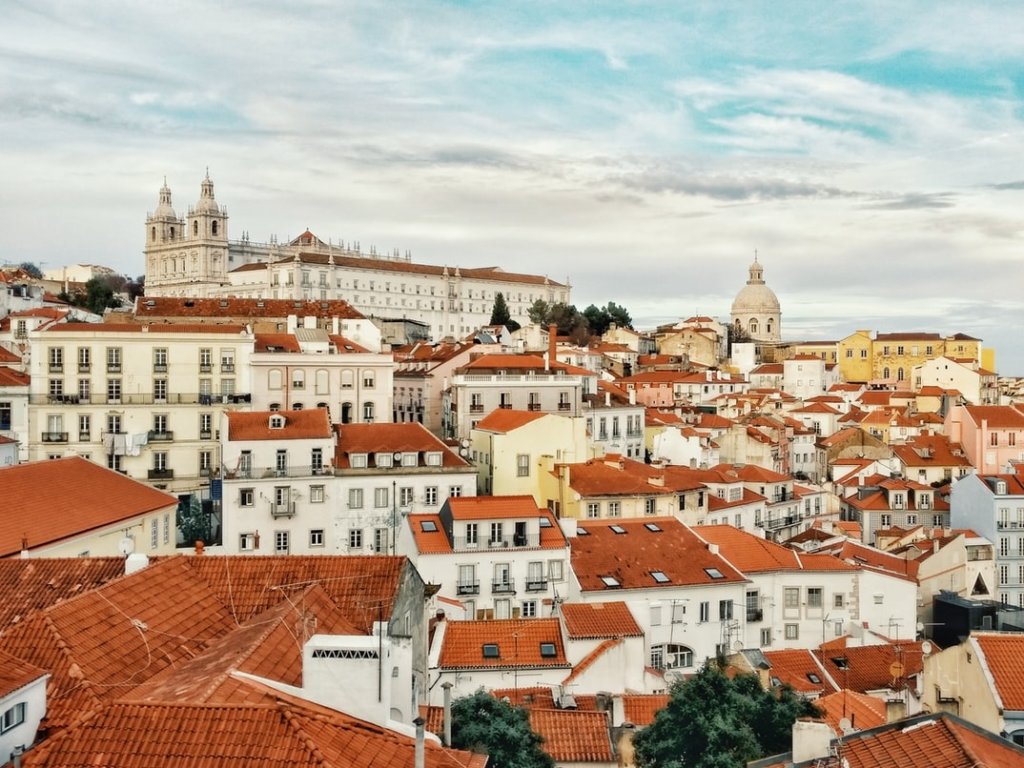
Long breaks for lunch or coffee are part of the typical working day. Colleagues tell each other about their week, minor day-to-day problems and good news. It's a great way to relax and unwind before going back to work or starting a new day! But it's essential to distinguish between social and business situations – as, in a social context, Portuguese people are not used to discussing business matters unless the host raises the subject. When it comes to deadlines, people have adopted a more or less relaxed attitude. Although punctuality does not seem to matter much in a social context, the Portuguese expect people to be punctual at work. Moreover, they also try to find the best work-life balance. They value family and friends more than anything, including friends inside their family circle.
In general, Portuguese people are naturally curious, open and very talkative. If you're shy and don't connect easily with people, the Portuguese will help you and make you feel at ease. If you're lost in the city and need help, you won't have any trouble finding someone willing to help you, even though that person doesn't speak English!
As an employee, you have the same rights as a Portuguese citizen regarding payment and working conditions. The maximum legal working week in Portugal is 40 hours, and you are entitled to a minimum of 22 annual leave days. Moreover, there are 12 mandatory public holidays and two optional public holidays in Portugal. The notice period for an employment contract depends on how long you have worked in a company:
The gross minimum wage for 2021 has been set at around €750. As an expat, you will usually earn more, with an average of about €1,620 per month. This may seem less than what you are used to, but don’t forget the affordable cost of living!
Like nationals, expats from the EU benefit from Portuguese social protection, regardless of the type of employment contract. You must pay personal income tax on your earnings, and this is deducted through your payslip. The tax system in Portugal is more lenient than in other countries in Europe, and the higher the income, the higher the tax deducted. The tax rate is 14.5% for the lowest income level and 48% (+2.5%) for the highest income level:
| Annual taxable income | Portugal income tax rate |
| up to €7,112 | 14.5% |
| €7,113–€10,732 | 23% |
| €10,733–€20,322 | 28.5% |
| €20,323–€25,075 | 35% |
| €25,076–€39,967 | 37% |
| €39,968–€80,882 | 45% |
| €80,883+ | 48% |
There are several sites online where you can find information on everything that happens in Portugal. Eventbrite or InterNations Lisbon arrange or suggest meetings for you who work or are new to the city. You will find everything from "Coaching Breakfast" to "train your brain" and also groups for those who want to meet at a café or bar to discuss business trends and opportunities.
Since Portugal is part of the European Union, it’s not difficult for EU citizens to relocate here. However, there are some guidelines that you have to follow according to Portuguese immigration policy. If you want to work in Portugal as an EU citizen, you need to apply for the tax identification number called NIF (Número de Identificação Fiscal). You can do so at different places:
The document requirements for a NIF number are small. You only need to present a valid photo ID, proof of your address (e.g., utility bill), and an employment contract. Your NIF number is necessary for different things, such as opening a bank account, setting up utilities, buying a car or applying for a driving license, paying taxes, etc...
After this, you need a CRUE (Certificate of Residency) certificate that you get at City Hall (Câmara Municipal). To get it, you need to bring your passport and employment contract with your NIF number.
Primary health care is provided by the Serviçio Nacional de Saude (SNS), which is tax-funded and organized by the Department of Health. The SNS ensures that all the residents in Portugal have access to health care, as is enshrined in the constitution. Adults usually only pay a small deductible for visits to the doctor and hospital stays, while this is no longer applicable for children and chronically ill people.
If you are working in Portugal, your employer should automatically enrol you and arrange payments into the social security system in the country, after which you can get health insurance. This means you will get the personal social insurance number (NISS) from the Social Insurance Office (Segurança Social). Doctors use the NISS to prescribe medication, check your medical history, and manage your sick leaves, maternity and paternity leaves, etc.… To see a specialist (e.g., cardiologists, psychologists) through the state healthcare system, you will typically need to be referred by a doctor. Patients usually have to pay something towards the costs of seeing a specialist in Portugal. Depending on what kind of treatment you need and what kind of specialist you end up seeing, you may need to wait, however. Although the quality of care is high, there can sometimes be a long wait to see specialists in Portugal on the SNS.
Once you're registered in the system, you will need to go to a "Centro de Saúde" (outpatients clinic) with your passport and NISS and sign up. They will then send you your healthcare card (cartão do utente), which you should carry at all times and allows you to receive discounted healthcare.
For certain occupational groups, there are also additional social insurances. It is also possible to get private insurance for a specific fee in Portugal, like in other countries in Europe. In fact, 20% of the residents also opt for private health insurance to supplement their public health insurance. This might be to cover extra services that the state Portuguese healthcare system does not include or to cover 100% of costs. This also entitles them to treatment from private healthcare providers in Portugal, which can actually be quicker than public healthcare services.
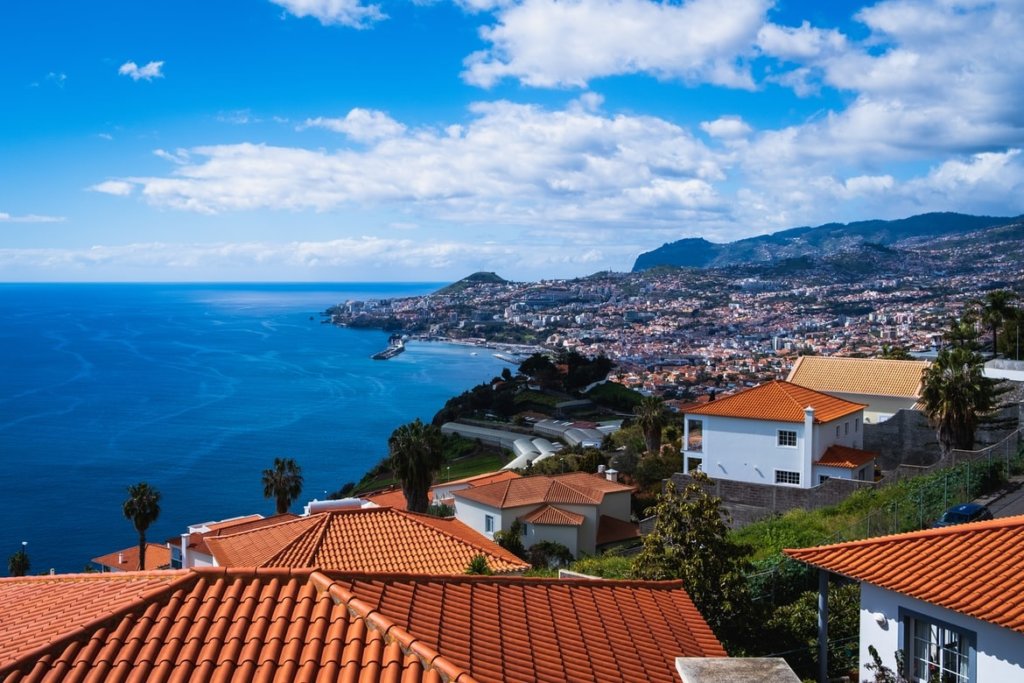
Once you have arranged the NIF number and CRUE certificate, it is time to open a bank account to receive your salary. You will be able to complete the process in just one visit. Bank cards are usually sent to your registered address within a few days. The required documents vary from bank to bank, and some accounts may have different requirements, especially if you want access to credit facilities.
To open a bank account in Portugal, you will usually need to bring the following documents:
The most popular Portuguese banks for expats are Caixa Geral de Depósitos (CGD), Banco Santander Portugal, Banco Comercial Portugues (BCP), and Novo Banco. You can also ask for advice from other expats or your colleagues to find the bank that fits your needs better.
In Portugal, there are a few fees to watch out for:
With some of Europe’s most breathtaking landscapes and glorious weather, it might be easy to dismiss Portugal as another popular holiday-hotspot but not consider it as a possible home. Not only is there a strong international culture thanks to frequent arrivals of expats, but it also stands out how sophisticated and culturally fine the country is.
Portugal offers incredible diversity for being a small country. Depending on the region you pick, you’ll find a variety of lifestyles: If you’re looking to escape the summer heat and crowds, head to the Northern part. If you are craving city life, the dynamic cities of Porto and Lisbon are waiting for you. Are sun, surf and beach your top preferences? Then head to the South.
Moreover, in recent years, more and more international companies have become based in Portugal which provides an excellent opportunity for multilingual speakers to find work. Combined with the Mediterranean way of life, affordable cost of living and the welcoming nature of the Portuguese, it’s an attractive opportunity for anyone looking to start a new life abroad!
Here are 5 of the main reasons we think anyone would love to live and work in Portugal:
So if the thought of living and working in Portugal attracts you, why not check out some of the job vacancies that we offer in the country here at Workwide Recruit!
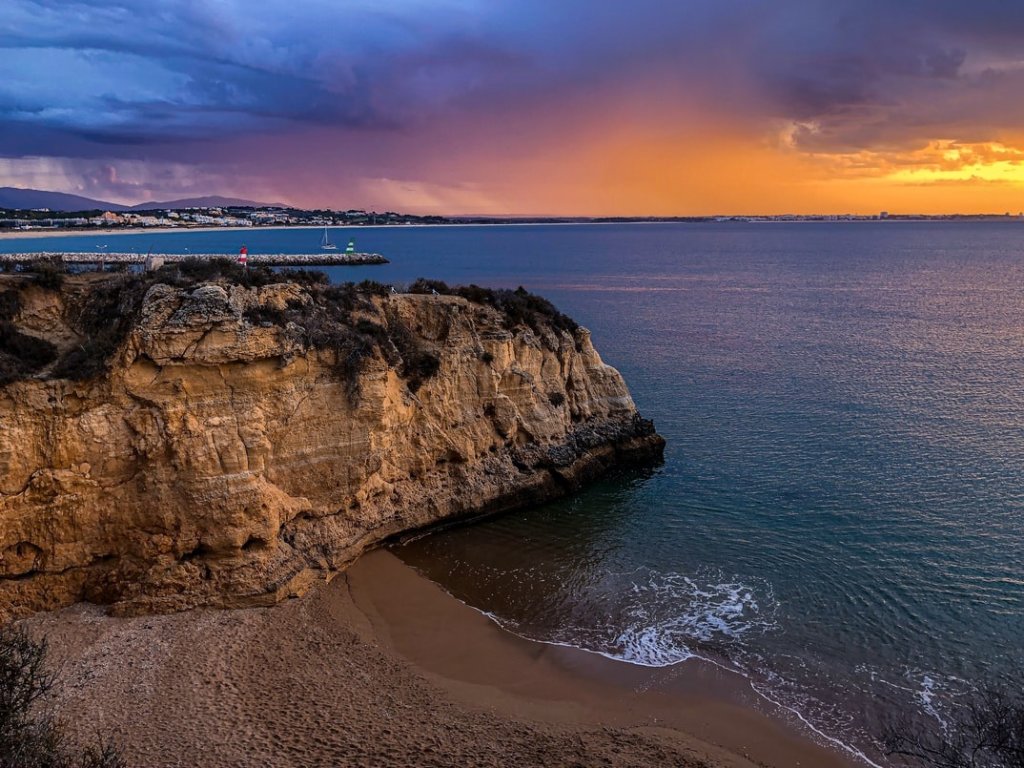
Relocating abroad is an exciting journey that opens up new opportunities, but it also comes with its own set of...
Read moreThere’s great comfort in connecting with other expats who can share their experiences from the destination you’re considering because every...
Read more
